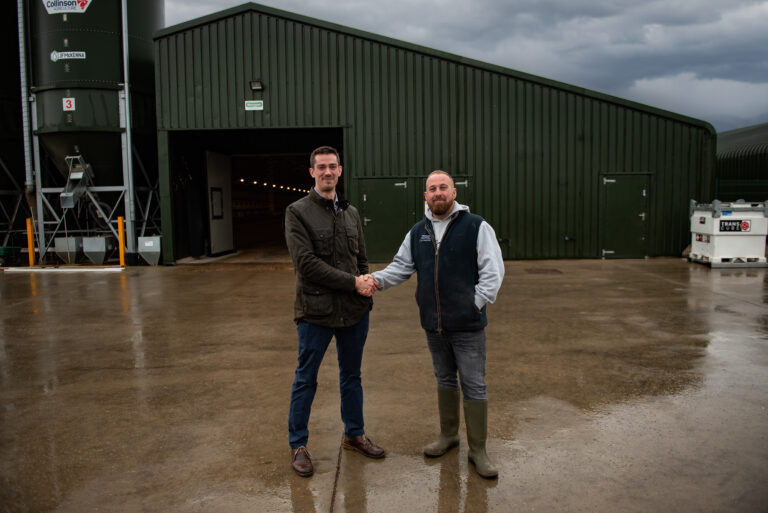A Norfolk poultry farm is taking part in an innovative trial of new sensors to enhance poultry welfare in conjunction with Avara Foods.
A Norfolk farm is taking part in technical trials with Avara Foods to look at several different forms of smart sensor systems.
Courteenhall farms have installed state of the art technology in six of its eight poultry sheds, housing around 250,000 birds, trialling systems from three different suppliers – Poultry Sense, Greengage and Intelia.
The purpose of the 12 month trial is to evaluate if Internet of Things (IoT) smart sensor systems could aid in improving Avara’s three pillars of poultry production; productivity, welfare and sustainability. The trial will assess if these systems can aid, and how, if they are suitable and practical for farmers or if they are still too early stage in their development and complicated, adding more work with no benefits.
Depending on the results of the trial, the systems could be used more widely across poultry farms supplying Avara.
Systems from the three different companies have been installed in two sheds each, with two being left as controls. Each have their own advantages, but all have the ability to capture temperature, humidity, carbon dioxide, and ammonia levels. Other parameters such as LUX, water usage, heat mapping and flock distribution functions, weight prediction modelling and audio cues to alert to stress calls are included by the various systems.
Sensors capture information as frequently as every 15 minutes, giving an extremely high level of granularity to the data. This is sent to the cloud via software that interprets and displays this in easy-to-understand ways to the farmer via an online portal.
The data is tracked, with the ability to perform trend analysis and benchmarking, and the farmer can deep dive into the data on an hourly, daily, weekly, flock cycle and yearly basis. This gives the farmer a host of information that they can use to spot trends, identify potential issues allowing quicker reactions, potentially preventing a negative outcome.
It should be a tool that compliments the farm manager and stockperson, allowing them to concentrate on other tasks, safe in the knowledge that there is a hypersensitive pair of eyes and even ears in the sheds at all times that can alert them to any issues.
It is hoped that the trials will showcase the tools as an aid for the farm manager and stockperson in their day-to-day activities.
“We are always looking for ways of improving on farm, whether that’s welfare, performance or sustainability, and hopefully these trials will deliver on all three,” said Samuel Laing, agricultural technology development officer, at Avara Foods. “I hope to see improved performance and welfare outcomes, with a higher degree of uniformity within, and between, flocks. This improved management would also help reduce feed consumption, water usage and reduce medication usage, all contributing to a more sustainable method of production with higher welfare for the birds.”
The trial will last 12 months, to take into account the effects of seasonal changes, and to gather enough data to validate the technologies.
Carl Fryett, poultry manager at Courteenhall Farms, said: “Whilst the restraints of avian influenza have made it challenging to get this trial underway, I am hopeful there will be numerous positive outcomes from utilising such high tech equipment, which will aid the management decisions I take when caring for each flock.”
Read more
Have a look at our health and welfare news pages


